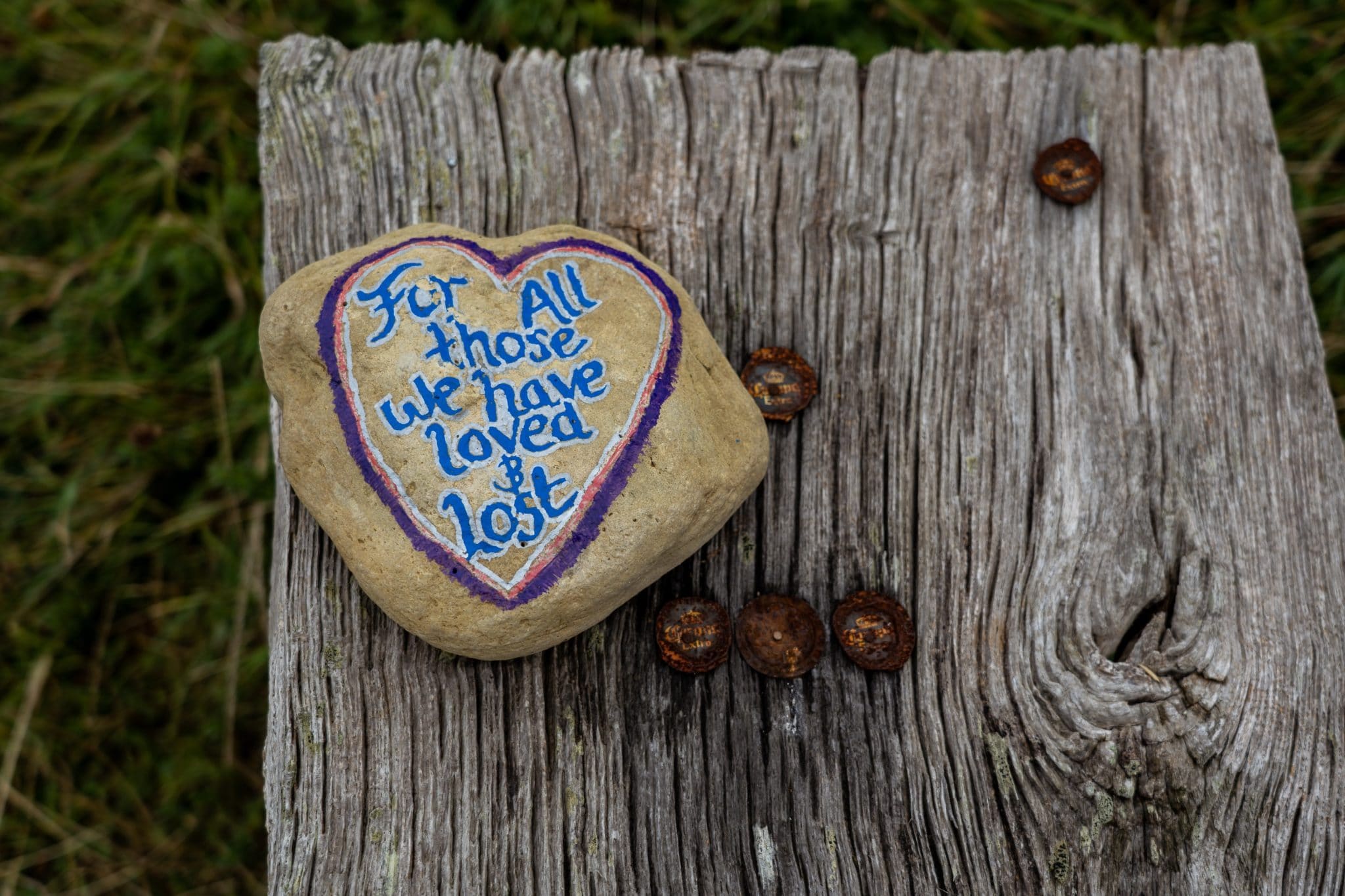
Dealing with grief at any time is a challenge, but dealing with grief in the New Year is especially difficult. Sometimes it might even feel like it’s an impossible concept. That’s completely understandable. Holidays are a time we all associate with loved ones and our greatest memories probably include times spent with others, including the person you are mourning. It can seem impossible to face what is supposed to be a fun, joyous time when what you really want is to not feel the complicated emotions that you’re feeling.
The beginning of a New Year can be especially trying for those who are grieving the loss of a loved one. The tradition of making New Year’s resolutions sometimes brings up even more complicated feelings, like guilt, loneliness, and anger. It might feel bad to think about ways to improve and enjoy your life when your loved one has passed. You might wonder how you could possibly celebrate, much less make plans for the coming year, when your loved one isn’t here to share those experiences with you. You might also feel guilty that you are the one who is still alive, that you can still enjoy experiences, after your loved one has died.
This can be especially true if the death of your loved one is recent. But It’s important to remember that grief isn’t linear. Sometimes the holidays intensify the feelings of grief even if a loved one passed some time ago. It is not at all uncommon to feel the feelings of grief, loneliness, or even anger intensify during the holidays.
If you find yourself struggling as the New Year approaches, you’re not alone. We hope the following suggestions help, but please remember that there is help available. Reach out to a trained, available professional any time for immediate help.
 Grief in the New Year: Understanding How Resolutions Work
Grief in the New Year: Understanding How Resolutions Work
Making New Year’s resolutions is a tradition that many find helpful. Some folks set incredibly lofty goals: I will lose 100 pounds or I will save $100,000.00.
The research on how effective New Year’s resolutions are can be discouraging. In fact, estimates are that only 10% of resolutions are actually achieved. There are reasons for this collective struggle and scientists have studied brain chemistry and behavior to find out why we all struggle so much with this annual ritual.
The research points to two main areas of explanation: the science of habits, and the science of stories, specifically the stories we tell ourselves.
In a nutshell, habits are the things we do over and over again, sometimes without even thinking about it. For example, picking up your phone when you’re bored and scrolling through Facebook is a habit.
Research shows that breaking habits can be difficult if we rely solely on willpower to do so. If we rely on science, though, our chances of being successful increase. The trick is replacing a habit you want to break with a healthier, more productive habit that will sustain your goal. For example, if you want to read more in the new year, instead of picking up your phone when you’re bored, you should carry a book with you and read that instead.
The second important component of a New Year’s resolution that lasts is the story we tell ourselves about it, otherwise called the self-story. We all do this. We all also behave in a way that makes those self-stories true. For example, if my self-story is that I will never be wealthy, my actions will prove that story true. I might splurge on something I don’t need instead of saving, for example, even if I really want to grow my savings account.
Grief in the New Year: Making Resolutions that Work
So, to make a resolution that you can keep, you have to recognize both your habits and the stories you tell yourself. Then you have to start small. Pick something that seems like a small habit to break, such as I won’t scroll through social media while I’m in bed instead of I’ll stop looking at social media. Once you’ve mastered a small habit like this, you can add another.
We’re sharing this science behind resolutions because if you do choose to make a New Year’s resolution while you’re grieving the loss of your loved one, we want you to feel good about the changes you’re making. The best way to do that is to set yourself up for success right from the very beginning.
Grief in the New Year: Five Resolutions for Grief and Loss
You might wonder if there are specific resolutions you can make that will help you move through the emotions and pain you feel after the death of someone you loved. While that answer is different for everyone, there are some specific resolutions or practices that often help those who are grieving.
Resolve to go at your own pace. This might seem obvious, but being kind to yourself is of the utmost importance while you’re grieving. You might not be able to do as much as you could before the loss of your loved one, or you might struggle with motivation or being able to follow-through. Resolve to treat yourself with kindness when this happens. Then try again.
Resolve to be honest about your feelings. It can be tempting to put on a brave face and tell people you’re fine when really, you’re not. Resolve to be honest with people and with yourself. This doesn’t mean you have to tell everyone everything, but having a trusted friend or a therapist to whom you can say anything will help.
Resolve to spend time with people you like. Grief can be isolating and we often feel like we’d rather be alone. We might even feel like a burden to those we love. But spending time with others as we grieve can be helpful in so many ways. If we spend time with others experiencing loss, we feel less alone. If we spend time with someone who makes us laugh, we’re reminded of joy.
Resolve to embrace a hobby. Keeping busy can help us process grief, and keeping busy with an activity that we enjoy can help bring both happiness and contentment into our lives. Choose a hobby or pastime that makes you feel good, and make time to do it consistently.
Resolve to remember your loved one. This might mean that you continue to say their name when talking with family and friends. It might mean that you embrace something they loved, like a hobby or a charity. However this looks for you, knowing that you will continue to honor the deceased through your words and actions can be a huge comfort.



Recent Comments